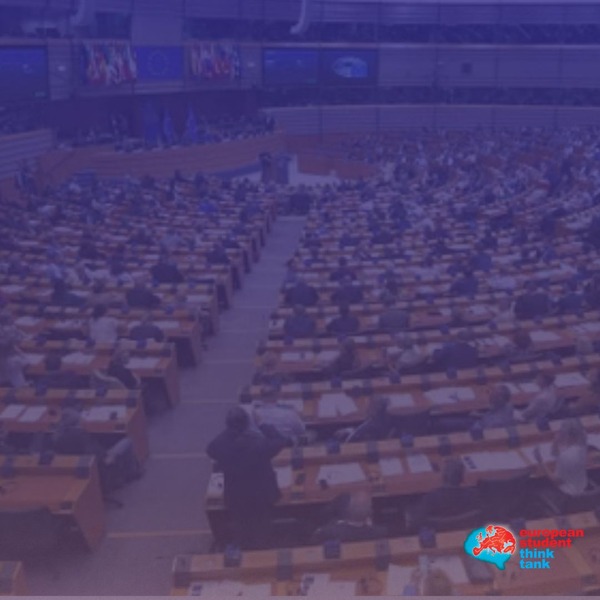By Henri Erti. Originally published on 2012/11/06
The initiation process to the prestigious“European Fraternity” has started for Croatia. In order to pledge for a forever binding brotherhood with the EU, Croatia has to prove that it has the economic dynamism, political endurance and strong devotion to the policies set by the EU. As a result of the current fiscal situation in EU, the ceremony may be an event full of pinched smiles and nervous twitching, rather than the glamorous occasion one would envision.
Focus on Prospects
Indeed Croatia is set to become the 28th member of the European Union in June. With EU membership, Croatia is entitled, and by EU law, obliged to become a contributing member of the EMU, and hence implement reforms needed to pave the way for the Euro in the next 8-10 years. Leaving the political, cultural and legal requirements aside, the European Union has the responsibility to avoid another fiscal turmoil by carefully analyzing the economic condition of Croatia. Frankly speaking, the EU can’t expand its borders simply for the sake of geographic influence, rather ensure that new members can and are willing to contribute for the well-being of other states.
How About Maastricht?
As the European economy took a nosedive, Croatian economy followed, recording a -1.2% growth rate in 2010 and followed by stagnation in 2011. With unemployment at 13.4 % andpublic deficit at -5.5 %, the grim numbers would certainly generate evocative discussions in Brussels, but the existing fiscal chimera has silenced the “Maastricht-fanatics”. (In fact many EU countries do not possess a very good record in following the rules set out in the Maastricht Treaty, among them France and Germany.) Furthermore, the current account deficit is at -1.0 % of GDP, which is not alarmingly high considering that Slovenia has -1.2%, Poland -4.3 % and Czech Republic at -2.9%. Nevertheless, the Croatian government has a great deal of work to do in order to become a strong contributing member of the EU.
Friends of Benefits
Due to the pernicious economic plague in Europe, Croatia is likely to face considerable challenges from 2012 into 2013. Not only is the country faced with barren fiscal situation, the trading sector is also beleaguered with an inflammatory environment. Croatia’s FDI consists for 75.8% of EU countries, who have been hit hard by the current crisis. Austria, whose FDI to Croatia was 44.8%, is likely to decrease this number as the Croatian internal economic issues continue to be unsolved. In terms of exports, Italy (18.9%) and Bosnia and Herzegovina(15.3%) remain the most important partners, although Germany, Slovenia and Austria contribute to the bilateral trade relations. Unfortunately, the Italian economy has not performed to its potential, and the Slovenian internal crisis has diminished the volume of its exports, which in turn paints the Croatian current account inevitable red because decreasing volume of trade with Slovenia forces Croatia to seek for substitutes. These substitutes are going to be costly, given the close relations between Slovenia and Croatia.
Keys to the EU Treasury
Overall it is realistic to conclude that the Croatian economy has remained in a recessionary state. Unfortunately this means the net-exports are likely to decrease, leading to weak employment levels that diminish the incomes of Croatians, who are then not able to consume as much and revitalize the internal markets. If the Croatian government wanted to inject liquidity to the troubled markets, it would not only increase government spending and debt, but also complicate the pre-accession agreements made with the European Union. Luckily this complex predicament can be altered. With EU membership Croatia can of course apply for EU funded development projects, which would boost the sectors under pressure and accelerate economic recovery. It would require, however, public and cohesive internalization of the EU benefits. In 2011 Croatia received 156 million euros to prepare the institutional and structural transition. Needless to say, that aid was warmly welcomed.
Welcome the new kid on the block
The Croats were exuberant to join the EU, surprisingly willing to give away their sovereignty they fought so hard for during the years before its split from Yugoslavia. That being said, being part of the EU is letting to the past. If someday Serbia or Montenegro become part of EU, grim historical disputes need to be put aside, as painful as it might be. After all, you really can’t choose your neighbors. Again, however, the current situation in the EMU forces many Croatians to consider economic factors before anything else. Consequently, the question is not whether Croatia is ready for EU, but rather whether the EU is ready for Croatia.
Henri Erti currently serves as EST ambassador to Croatia.

 Addressing unbalanced tourism growth: Smart and sustainable policies
Addressing unbalanced tourism growth: Smart and sustainable policies  Mega-Sporting Events and the Right to Housing: From Celebration to Eviction
Mega-Sporting Events and the Right to Housing: From Celebration to Eviction  Macron’s Gambit: France’s Bid to Dethrone Germany as Europe’s Leader
Macron’s Gambit: France’s Bid to Dethrone Germany as Europe’s Leader  Europe-Gulf Relations: from past hurdles to present challenges
Europe-Gulf Relations: from past hurdles to present challenges 


